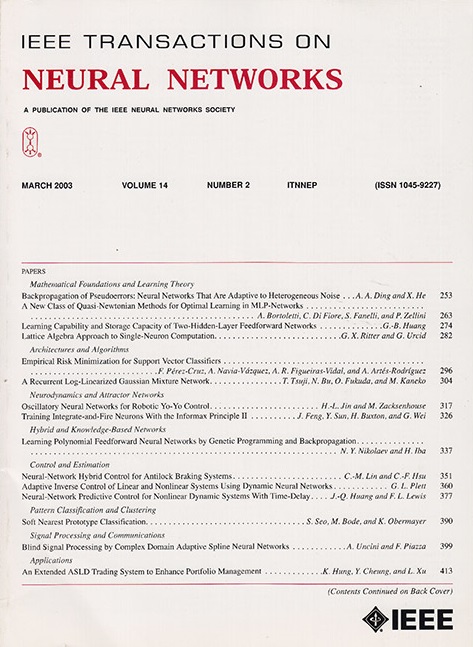基于混合自适应动态规划的无人潜航器最优跟踪控制
IF 8.9
1区 计算机科学
Q1 COMPUTER SCIENCE, ARTIFICIAL INTELLIGENCE
IEEE transactions on neural networks and learning systems
Pub Date : 2025-01-10
DOI:10.1109/TNNLS.2024.3512539
引用次数: 0
摘要
提出了一种基于混合自适应动态规划(ADP)的无人水面车辆最优跟踪控制策略求解方法。该方法将数据驱动的积分强化学习(IRL)和动态事件驱动(DED)机制集成到所建立的增强系统的控制策略解决方案中,同时获得跟踪控制器的前馈和反馈组件。针对USV模型和参考轨迹,建立增强系统,基于IRL导出跟踪Hamilton-Jacobi-Bellman (HJB)方程,充分利用系统数据信息,降低模型依赖性。对于跟踪HJB方程的求解,采用了基于ded的控制器更新规则,进一步降低了网络传输的负担。在ADP方法的实现中,利用基于DED经验重播的权重更新规则来回收数据资源。实验表明,与静态事件驱动(SED)方法相比,DED方法减少了78%的样本量,平均间隔提高了约4倍。本文章由计算机程序翻译,如有差异,请以英文原文为准。
A Hybrid Adaptive Dynamic Programming for Optimal Tracking Control of USVs
This article presents an efficient method for solving the optimal tracking control policy of unmanned surface vehicles (USVs) using a hybrid adaptive dynamic programming (ADP) approach. This approach integrates data-driven integral reinforcement learning (IRL) and dynamic event-driven (DED) mechanisms into the solution of the control policy of the established augmented system while obtaining both the feedforward and feedback components of the tracking controller. For the USV model and the reference trajectory, an augmented system is established, and the tracking Hamilton-Jacobi–Bellman (HJB) equation is derived based on IRL, aiming to fully utilize system data information and reduce model dependency. For the solution of the tracking HJB equation, the DED-based controller update rule is used to further reduce the burden of network transmission. In implementing the ADP method, the DED experience replay-based weight update rule is utilized to recycle data resources. Experiments show that compared with the static event-driven (SED) approach, the DED approach reduces the sample size by 78% and increases the average interval by about four times.
求助全文
通过发布文献求助,成功后即可免费获取论文全文。
去求助
来源期刊

IEEE transactions on neural networks and learning systems
COMPUTER SCIENCE, ARTIFICIAL INTELLIGENCE-COMPUTER SCIENCE, HARDWARE & ARCHITECTURE
CiteScore
23.80
自引率
9.60%
发文量
2102
审稿时长
3-8 weeks
期刊介绍:
The focus of IEEE Transactions on Neural Networks and Learning Systems is to present scholarly articles discussing the theory, design, and applications of neural networks as well as other learning systems. The journal primarily highlights technical and scientific research in this domain.
 求助内容:
求助内容: 应助结果提醒方式:
应助结果提醒方式:


